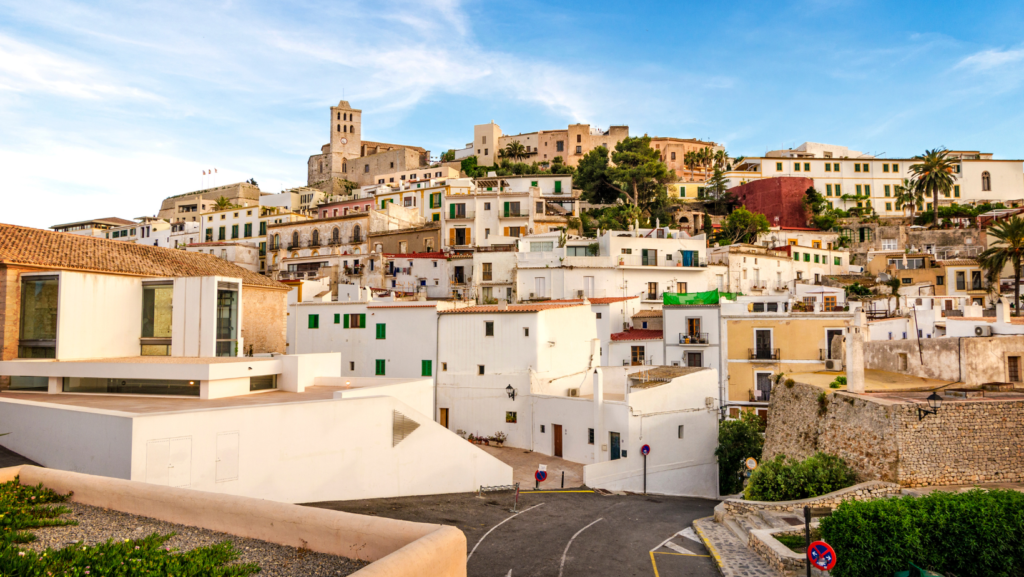The Cédula de Habitabilidad Ibiza plays a crucial role in the Ibiza real estate market. It certifies that a property complies with legal standards for habitation. Without this certificate, property owners cannot connect utilities like water, gas, or electricity, which could significantly affect both buyers and sellers. In this guide, you will learn everything you need to know about the Cédula de Habitabilidad, its various types, and the process of renewing it, which is vital for navigating Ibiza’s real estate market smoothly.
Why You Need the Cédula de Habitabilidad in Ibiza Real Estate
First and foremost, the Cédula de Habitabilidad certifies that a property meets the minimum standards for occupancy, such as size, sanitary facilities, and structural safety. The Consell Insular de Ibiza issues this document, and it’s crucial for any real estate transaction. Therefore, if you’re buying, selling, or renovating, you must ensure your property has this certificate. By having a valid Cédula de Habitabilidad, you will not only comply with the law but also guarantee your property is fit for living.
Types of Cédula de Habitabilidad and Their Importance
There are different types of Cédula de Habitabilidad, and each serves a specific purpose. These distinctions are important for understanding the compliance needs of various properties in Ibiza:
1. Cédula de Primera Ocupación
- Issued for newly built homes or those undergoing significant renovations.
- This certificate ensures new developments meet all habitability standards.
2. Cédula de Renovación
- Required when the original certificate expires.
- This renewal guarantees continued access to utilities without any legal barriers.
3. Cédula de Carencia
- Relevant for older properties, especially those built before 1987.
- It allows older homes to gain access to utilities despite lacking a previous certificate.

How Long Does the Cédula de Habitabilidad Last?
Typically, it is valid for ten years. After this period, property owners must renew it. Importantly, you should apply for renewal before selling or renting out your property. Failing to renew the certificate can cause delays in real estate transactions. Thus, keeping this document up to date ensures that your property remains compliant with the law and that buyers or renters have no concerns.
Steps to Renew
Renewing your Cédula de Habitabilidad is a straightforward process if you follow the correct steps:
- Hire a licensed architect or technician to inspect your property for compliance.
- Gather necessary documents, including building plans and details of any renovations.
- Submit the application to the Consell Insular de Ibiza.
- Await the inspection and approval from local authorities.
By renewing your certificate, you not only ensure compliance but also protect the value of your property in the competitive Ibiza real estate market.

Consequences of Not Having a Valid Cédula de Habitabilidad
If your property lacks a valid requirement, you may encounter several issues. Firstly, you will not be able to connect essential utilities like water and electricity. Secondly, selling or renting the property becomes nearly impossible, as potential buyers or renters will demand proof of legal compliance. Furthermore, local authorities may impose fines ranging from €60 to €3,000 for operating without this certificate. As a result, property owners in Ibiza must keep their certificate current to avoid these setbacks.
Common Misunderstandings About the Cédula de Habitabilidad
Some homeowners mistakenly believe that an expired Cédula de Habitabilidad renders their property illegal. This is not true. While the certificate needs to be renewed, the property itself does not become illegal. Moreover, some people think older homes are exempt from needing the certificate, but this is another misconception. Properties built before 1987 still require the Cédula de Habitabilidad to meet today’s legal standards, especially for utility connections and real estate transactions.
The Application Process
Applying will requires you to take several steps, but it’s a process you can manage efficiently. Here’s what you need to do:
- Hire a professional technician who will assess the property’s compliance with local regulations.
- Gather all necessary documentation, including building plans, permits, and previous certificates, if available.
- Submit your application to the Consell Insular for processing.
- Prepare for an inspection, during which local authorities will verify the property’s compliance.
Once the inspection is completed and the application is approved, the Cédula de Habitabilidad will be issued. This document will ensure the property is legally habitable and can be sold, rented, or connected to utilities without issue.
Final Thoughts: Why the Cédula de Habitabilidad Ibiza Is a Must-Have
The Cédula de Habitabilidad Ibiza is far more than just a formality; it is essential for maintaining legal compliance and ensuring the safety of the property. By ensuring that your property has a valid certificate, you make it easier to sell, rent, or renovate, while also guaranteeing that all utility services can be legally connected. Additionally, keeping this certificate up to date will help avoid legal complications and financial penalties.
If you’re uncertain about the process or need professional assistance, Hoy Hoy Ibiza offers expert advice and services to ensure your property transactions in Ibiza are smooth and legally compliant.
